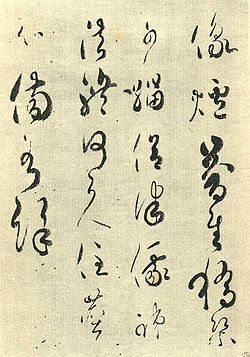 What will your final words be just before you die?
What will your final words be just before you die?
Japan has a long history of jisei, or death poems. Jisei is the “farewell poem to life.” These poems were written by literate people just before their death. One of the earliest record of jisei dates to 686 CE with the death of Prince Otsu, a poet and the son of Emperor Temmu, who was forced to commit suicide on false charges of promoting a rebellion.
Jisei was written in kanshi, waka, and haiku. Not all death poems are haiku. However, they are all in the short poem style (tanka). Kanshi is the Japanese word for Chinese poetry. Waka is a poem written in Japanese (as opposed to a kanshi). Finally a haiku is a poem that relies on two images divided by a kireji, or cutting word. Haiku consist of 17 on, which are different from our English syllables.
Like most haiku, jisei seeks to transcend thought and create an “Ah, now I see” moment. Jisei strives to connect the reader with the poet’s mind just as they are poised at the end. Haiku tries to remove our dualistic ways of thinking, the division between beauty and ugliness, life and death, future and present.
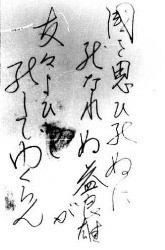
A Japanese soldier who died in a submarine Sept. 7th, 1944.Translation: This brave man, so filled with love for his country that he finds it difficult to die, is calling out to his friends and about to die.
In the Japanese language, according to Hoffman (1986), shi “death” is rarely used to reference a person. Instead, specific kinds of death are used: shinju, “lover’s suicide;” junshi, “warrior’s death for his lord;” senshi, “death in war;” roshi, “death from old age.” Death is linked to the type of life a person lived. Jisei is an extension of this idea.
The images used to represent life and death changed over time. Early poems used flowers to represent the ephemeral world. Later poems, particularly those of the samurai class, added other images from nature.
Some jisei are dark while others are hopeful. They each reflect what is on the mind during the last days or moments of the writer. Acceptance is one of the key elements to jisei; the poem comes directly from Zen’s acceptance of life as it is, including the inevitability of death.
I have to note that our translations of these poems can obscure word play. In Japanese, the same word can have multiple meanings based on context. Many poets use this to advantage to build multiple layers of meaning. English translations lose out on this aspect of Japanese.
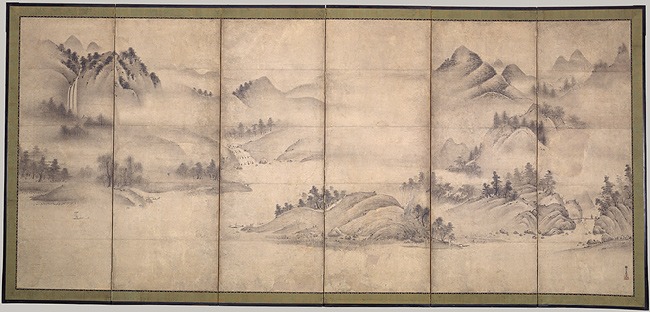
Here is a small selection of death poems:
There is no death; there is no life.Indeed, the skies are cloudless
And the river waters clear.–Toshimoto, Taiheiki (Chronicle of Grand Pacification).
I wish to die
in spring, beneath
the cherry blossoms,
while the springtime moon
is full.–Saigyo (1190).
Inhale, exhale
Forward, back
Living, dying:
Arrows, let flown each to each
Meet midway and slice
The void in aimless flightThus I return to the source.
–Gesshu Soko (1696).
Frost on a summer day:
all I leave behind is water
that has washed my brush.–Shutei
Bitter winds of winter
but later, river willow,
open up your buds.-Senryu (1790)
Not even for a moment
do things stand still-witness
color in the trees.–Seiju
Farewell-
I pass as all things do
dew on the grass.–Banzan
Holding back the night
with it’s increasing brilliance
the summer moon.–Yoshitoshi.
On a journey, ill;
my dream goes wandering
over withered fields.-Basho.
References
Hawkins, A. (2002). Four Japanese Death Haiku. Academic Medicine 77[1].
Hiroshi, K. (1944). Death Poem. https://en.m.wikipedia.org/wiki/File:Death_poem_by_Kuroki_Hiroshi.jpg
Hoffmann, Y. (1986). Japanese Death Poems: Written by Zen Monks and Haiku Poets on the Verge of Death. Boston, MA: Tuttle Publishing.
Shinso, K. (1525). Landscape of the Four Seasons. http://www.metmuseum.org/toah/works-of-art/41.59.1,2
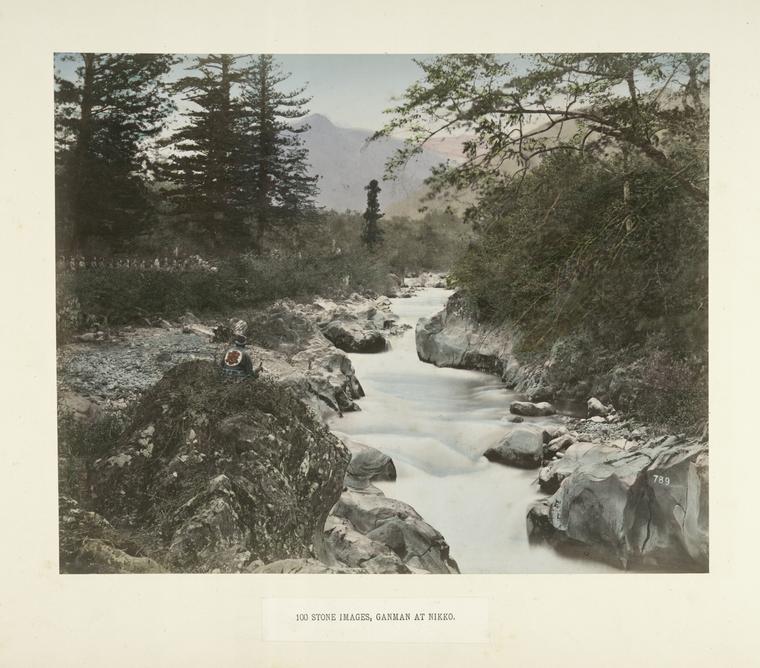
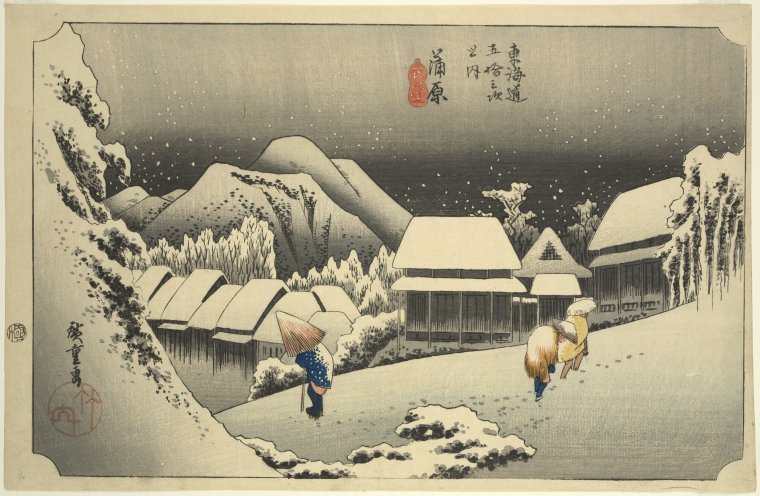
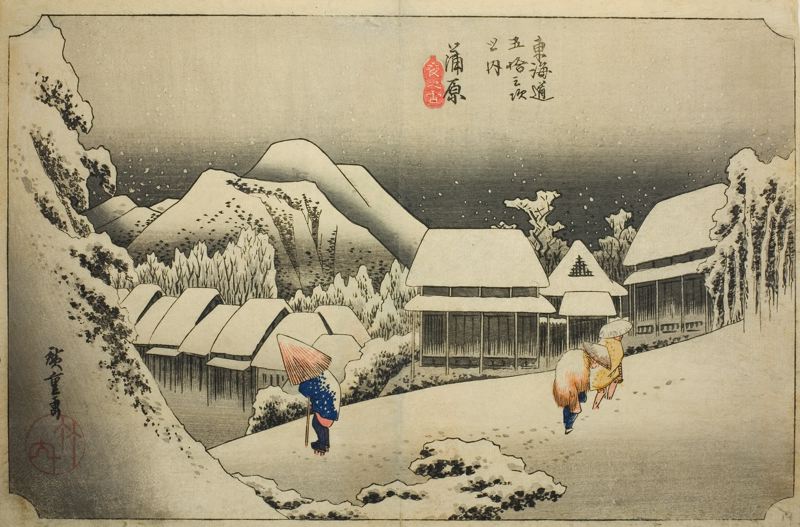
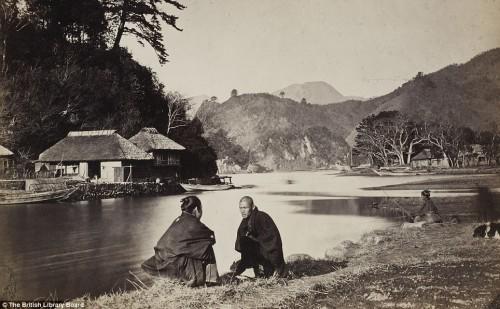
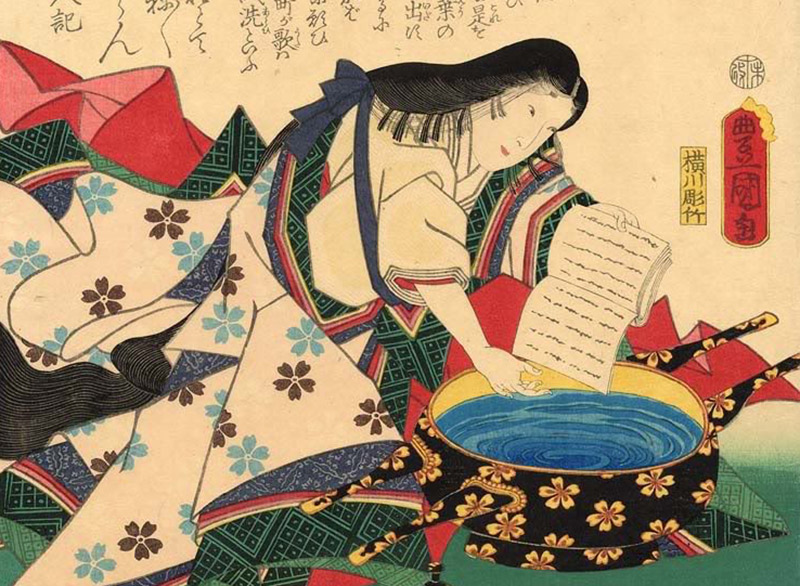
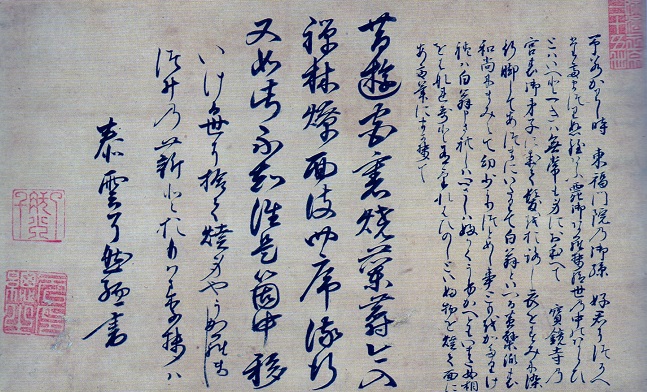
And now, the end is near
And so I face the final curtain
My friend, I’ll say it clear
I’ll state my case, of which I’m certain
I’ve lived a life that’s full
I traveled each and every highway
And more, much more than this
I did it my way
Thank you for sharing!
Strands of honey wave
Hands much smaller than my own
One then two then three
To the void all things return
Remember your Father well
Thank you for sharing!
Hello, how are you? I love this concept and I’m going to die soon, so I am writing death poems, I’ve written 4 so far. All of them are written in Kanshi form and I would like your opinion on them. The first 3 ones are very direct and literal. The poem that I like the most is the last one.
1. Dear Death, you’re my dream come true.
I always think about you
And you’ll free my family
From the burden that I am.
You’ll bring peace to my soul
And for that I am grateful.
I accomplished my mission:
Stopping my beating heart.
2. Oh Suicide, please take me;
I am begging you!
Oh Suicide, set me free
For you hold the key.
If you don’t, I’ll cry
For it’s best if I die.
I hope you won’t reject me,
I don’t deny that we’re friends.
3. I am not sorry for
My extinction, but please
Accept my apologies
For my existence.
This is a tragedy
For you, but for me
It’s the best thing that
Could ever happen.
4.Like the moon I shall rise,
When darkness falls I’ll be light.
I’ll join the stars for
I’m a daughter of the night.
I wish to be bright
Like the stars or moonlight,
I hope there’s a cloudless sky
When I sing my lullaby.
If you are considering suicide, I urge you to seek out help first. Writers of death poems weren’t seeking death in most cases. Rather, they were coming to terms with deaths that stood outside their control: either political execution orders or natural deaths. If you are in the US please give the National Suicide Prevention Lifeline a call: 1-800-273-8255.
In traditional Bushido, suicide was condemned as shirking one’s duty as a warrior– serving others for as long as possible, even extending to an eternity of service:
Your fourth poem captures more of the Buddhist imagery present in traditional jisei. Thank you for sharing.
I hadn’t heard of this before, but what a fascinating concept!
I’m very late to the party on this post, but thank you for introducing me to the idea of Jisei and explaining it so clearly.
I also love TrippleVannila’s idea of Jisei holding some kind of tangible power in a fantasy novel! It’s such a poignant concept that it can’t help but create real emotion within the reader snd I agree it would resonate really well and ties in perfectly with the idea of ichi.
My imagination is running wild with this now and I’m imagining something like, by reading the Jisei under the right circumstances, the reader can summon a spirit familiar formed of the writer’s ichi to do their bidding.
You’ve definitely given me some tasty food for thought!
I’m glad you are feeling inspired by jisei. It is an interesting idea. In a similar sense, you should take a look at my article about the final letters of World War II kamikaze pilots.
Wow, this is an amazing concept. An art piece someone wants to share right before they die. Now I can’t help thinking about how you could make that a cool mechanic in a fantasy story. There’s magic and spells, and the most powerful one of all is a poem you make before you die. Right at your final breath, your spirit leaves your body and time is frozen as you write your poem. The paper appears after you die and it can be used to make the most powerful spells in the world and it’s super or minuscule power depending on how beautifully it’s done and how much of their soul they put into the writing. Or they could decide not to write a poem at all and they just pass into the afterlife. Okay, just to be clear, I know very little about asian culture and thinking about this just gave me an idea that seems cool to me. I’ll try making my own Jisea!(it will probably be inaccurate but I’ll try to follow the rules forgive me for my terribleness lol. I’m just inspired!):
My life was a flame
Bombastic yet small and frail
Now I am ashes
That is a neat idea for a magic system. Japanese folklore has a similar idea behind ghosts; if someone has focus and strong emotions, usually rage, when ichi dies, ichi becomes a vengeful spirit unless focused into a jisei or some other distraction.
That’s a good poem. It follows the jisei model well, and I’ve read samurai jisei with similar themes.
Thank you! I tried my best. 🙂
I have a question, does the jisei the ichi is focused into have to be written by the ichi before they die, or can it be written by anyone intending to contain the certain ichi? Does the jisei have any special properties once the ichi is in it? Like bringing misfortune or something?
Typically, jisei were written before the author committed seppuku, went on a kamikaze flight, or went into a battle with zero chance for survival.
Do I have a body? Or have I none?
Am I who I am? Or am I not?
Pondering these questions I sit
Leaning against the cliff while the years go by
And the green grass grows up between my feet
And the red dust settles on my head
Then men of the world come and thinking me dead
Bring offerings of wine and fruit
~Han-Shan~
c. 850
tr. wandering poet
Thank you for finding that poem!
You have one of the finest blogs out there on Japan. Thank you. I really enjoy your posts. So glad I found you! Keep up the good work.
Thank you!
Memento mori. I
know, and feel the seasons close.
Gentle wind. The flame.
Spring comes. The soil tilled and furtle.
My purpose done. The path gone.
Thank you for sharing this poem!
The tears which feed the
moss
the cold stones…
A sorrowful poem. Thank you for sharing.
i sat once and thought: “what would my final words be. what words would i commit to writing at my death, if i had the chance.” a moment latre, this came forth.
the seasons have changed
cherry blossoms are falling
the wind is now gone
by the koi one finds their peace
as the moss grows on the stones
That is a nice jisei!